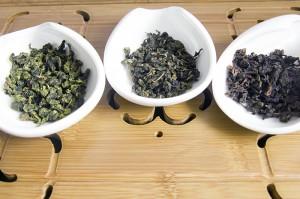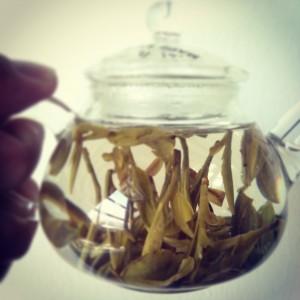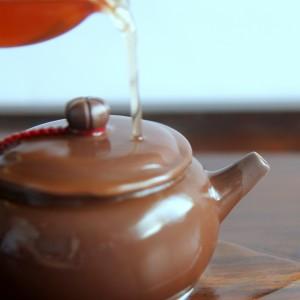Whether you are Zhang Tianfu, Wu Juenong, Chen Yuan or have no idea who those people are, every tea lover starts somewhere.
Here are some misconceptions I had as a complete novice almost 2 decades ago:
i) Looking for citrus notes in Orange Pekoe
ii) Thinking that “more sugar” is the solution to good tasting tea
iii) Flavored tea is more interesting
And the list goes on and on but I think you get the idea. Even if you grew up in Wuyi Mountains, everyone starts somewhere.
Here are 5 things I wish I had known earlier, would have saved myself much time, money and tea leaves.
So here goes:
“You Tasted One, You Tasted Them All”
This can apply to broad categories like green tea for example. Or it can go down to specifics like the variety concerned.

My impression of Tieguanyin is that bitter, strong brew that is served in the restaurants. Hence even when I started drinking tea “properly”, I steered clear of Tieguanyin for some time.
My loss.
Today I scarcely go a week without drinking it, no mean feat considering the variety of tea I have.
I suspect for many people, the experience is similar but different. Many associate Tieguanyin with that vegetal, pungent, stomach-nuking tea without realizing it is much more than that.
The same applies for most teas- particularly famous ones where fakes flood the market. How many people express disdain for Longjing (Dragon Well) when all they experience are inferior or fake versions of it?
Which brings me to the second point……
“Let’s Go For the Famous Ones”
Dahongpao, Xihu Longjing, Menghai 7152, Jin Jun Mei.

Fame.
And the negative by-products of fame: being expensive and prone to forgery.
That is not to say they are not worth the money- at least not all the time- but when one is starting out with tea, poor brewing techniques are bound to come with the territory, as are poor storage habits, wasting many a good packet of tea in the process, especially since brewing tea is only as strong as the weakest link.
In addition, what a newish drinker looks for would be different from an experienced drinker.
If you offered an authentic Huang Zhi Xiang to a new drinker, the response might be “It’s too bitter, can you pass the sugar” instead of appreciating the ‘shan yun’.
One’s palates often inadvertently gravitate towards the better (and often pricier) teas as one progresses, there is no sense to pursue the big names right from the start.
“Health be damned, hedonism rules”
On one hand, the health benefits of tea are very much amplified, often to point when you have people willing to drinking horrible tasting tea for its “benefits”- a phenomenon that doubtlessly offends our sensibilities.
On the other hand, just because it is an epicurean delight doesn’t mean you have to drink to ruin.
A point we repeatedly stress is that there’s no conflict between drinking for health and for taste. In fact it’s perfectly complementary.
For example, a very common bad habit in drinking tea is to drink tea that has grown cold- why waste a good thing.
That however damages the stomach and older tea drinkers often point out their stomachs hurt when drinking ‘cooling’ teas and their enjoyment of tea is compromised.
That is why numerous serious tea publications such as Chen Zong Mao’s Zhong Guo Cha Jing which is commonly regarded as the most authoritative publication on tea do talk extensively about the health implications of tea.
“Let’s Show the Old Fogeys How It’s Done”
Many people often think tea is antiquated and ritualistic and often devise their own ‘innovations’ to simplify the process.
That is not to say all innovations are to be avoided. For example I do love the ingenuity of pots which allow gongfu brewing in the office without the whole kitchen sink.

There is a reason why certain things are done in traditional tea cultures- i.e. China and Japan- and bearing in mind that the best tea producers produce for their own consumption, it’s not such a bad idea to follow their brewing habits, at least for a start.
For example, if you add one teaspoon of Dancong to a huge mug and poured boiling water into it for 3 minutes, the best authentic Dancong (I say nothing of fakes that are meant to fool the export market) would taste horrid and insipid.
Not to say that traditional methods can’t be improved upon but one thing I learned was to see how it’s done traditionally and modify from there instead of assuming people have been idiots for centuries.
Which is related to the last point…..
“Let’s incorporate what we learned in wine tasting or coffee appreciation”
Tea stands alone as a beverage.
It sounds odd to say this now but I drank coffee before I did tea- at least proper tea. By the age of 12, I liked strong coffee. If it doesn’t give me a jolt, it’s not worth drinking.
I approached tea the same way, mistaking harshness for quality- probably explains why I didn’t drink green tea for a long time.
Similarly, my friends who got into wine before they did tea often approach a tea looking for its notes and behaving as though it was a hallmark of a good drinker to identify obscure notes.
That is a topic for a separate post but in a nutshell, you would be missing the whole point.
Approach tea on its own merit- let it speak to you and touch you.
Tea appreciation has had a longer history than wine or coffee; approach it on its own merit.
See more articles on Tea Appreciation here
